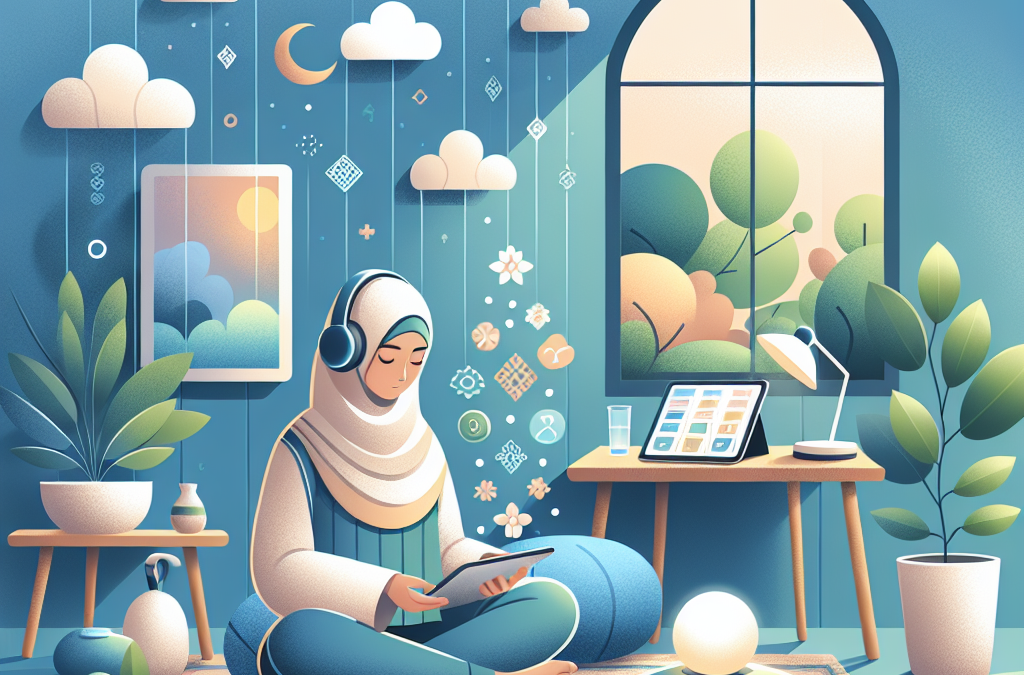Relaxation Technology for Students: Managing Academic Stress
In today’s fast-paced educational environment, students face immense pressure to excel in their studies, often leading to overwhelming stress. Thankfully, technology has stepped in with innovative solutions to help manage this stress effectively. Let’s explore how relaxation technology can be a game-changer for students grappling with academic pressures.
Table of Contents
1. Understanding Academic Stress
2. The Role of Relaxation Technology
3. Popular Relaxation Technologies for Students
4. Benefits of Using Relaxation Technology
5. How to Integrate Relaxation Technology into Your Routine
6. FAQs
7. Conclusion
Understanding Academic Stress
Academic stress is a common phenomenon among students, characterized by feelings of anxiety, tension, and worry related to academic performance. The constant pursuit of excellence, fear of failure, and tight deadlines can take a toll on mental health. Recognizing the symptoms early, such as fatigue, irritability, and lack of concentration, is crucial to managing stress effectively.
The Role of Relaxation Technology
Relaxation technology offers innovative solutions to mitigate stress by leveraging advancements in tech. These technologies are designed to promote relaxation, enhance focus, and foster a sense of well-being. From mobile apps to wearable devices, relaxation technology is becoming increasingly accessible and easy to use.
Popular Relaxation Technologies for Students
Below are some popular relaxation technologies that can help students manage academic stress:
1. Meditation and Mindfulness Apps
Apps like Headspace and Calm offer guided meditations, mindfulness exercises, and breathing techniques. These apps are perfect for short breaks between study sessions, helping to clear the mind and reduce stress levels.
2. Wearable Relaxation Devices
Wearables like the Muse headband and Spire Stone track physiological indicators such as heart rate and breathing. They provide real-time feedback, guiding users through relaxation techniques to achieve calm and focus.
3. Virtual Reality (VR) Relaxation Experiences
VR headsets offer immersive relaxation experiences, transporting users to tranquil environments like beaches or forests. These virtual retreats can be a powerful tool for stress relief, providing a much-needed escape from the pressures of academic life.
4. Biofeedback Devices
Biofeedback devices help students understand their body’s stress responses and learn how to control them. By monitoring physiological signals such as heart rate variability, students can practice relaxation techniques that enhance their ability to manage stress.
Benefits of Using Relaxation Technology
Integrating relaxation technology into daily routines can offer numerous benefits:
1. Enhanced Focus and Concentration
Regular use of relaxation technology can improve focus and concentration, making it easier for students to absorb information and perform well academically.
2. Improved Mental Health
By reducing stress and anxiety, relaxation technology contributes to better mental health, leading to increased resilience and emotional stability.
3. Better Sleep Quality
Relaxation techniques can promote better sleep, essential for cognitive function and overall well-being. A good night’s sleep is crucial for memory consolidation and learning.
4. Increased Productivity
With reduced stress levels, students can enjoy increased productivity, allowing them to make the most of their study time and achieve their academic goals.
How to Integrate Relaxation Technology into Your Routine
Integrating relaxation technology into your daily routine doesn’t have to be complicated. Here are some tips:
1. Set aside dedicated time each day to engage with relaxation technology. Even a few minutes can make a significant difference.
2. Experiment with different technologies to find what works best for you.
3. Use technology as a complement to other relaxation techniques, such as exercise or socializing.
4. Stay consistent with your practice to reap the full benefits.
FAQs
Q: Can relaxation technology replace traditional stress-relief methods?
A: While relaxation technology is a powerful tool, it should complement, not replace, traditional methods like exercise, healthy eating, and social interaction.
Q: Are there any side effects of using relaxation technology?
A: Generally, relaxation technology is safe to use. However, it’s essential to use it in moderation and ensure it doesn’t become a distraction from studying.
Q: How soon can I expect to see results?
A: Results can vary, but many users report feeling calmer and more focused after just a few sessions.
Conclusion
Incorporating relaxation technology into your academic routine can be an effective strategy for managing stress. By leveraging these tools, students can enhance their mental health, improve focus, and boost productivity, paving the way for academic success. Remember, the key is consistency and finding what works best for you. So, why not give it a try and see the positive impact it can have on your academic journey? ?
Roshiwave Meditation Mind Machine
Add CTA sections description.

